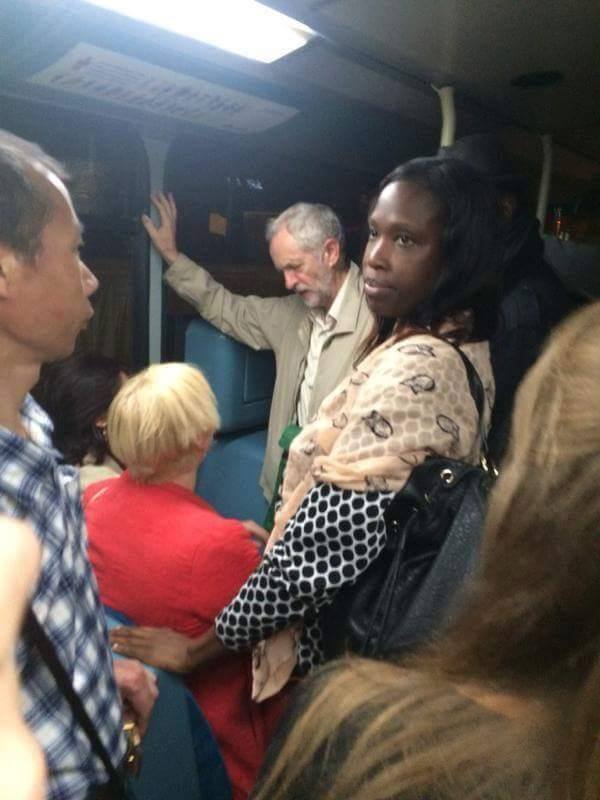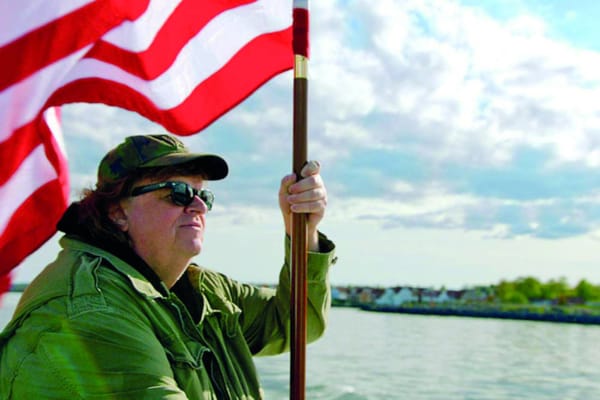An Idiot’s Guide To A Post Brexit World
What happens now?

So, we’re out. What now, eh? What came to pass last Thursday and early Friday morning was, whichever way you cut it, historic. No full country, this deep in the EU, has left it before and now we’ve got to deal with the fallout for better or for worse.
Chaos was the undoubtedly the adjective of Friday morning, with the pound plummeting, David Cameron resigning and Twitter going into meltdown. But what actually does this all mean for us, and what’s going to happen next?
We had a referendum, so what?
The referendum isn’t actually a legally binding declaration of our exit from the European Union, it’s almost like one big poll in which over 70% of us gave our opinion. The next step is for parliament to pass a motion to that effect, repealing the 1972 European Communities Act and starting the leaving process.
Notably, the government could, if it chose to, not accept this decision at all, going against the will of the people that they are in parliament to represent. This would however be a clear affront to democracy as whether you agree with the result or not, it was widely accepted that whichever way the vote went that would be the way the country would proceed. The majority of votes cast (17.4 million to 16.1 million) were in favour of the UK leaving the EU – this ain’t a dictatorship just yet.
Now the vote has passed the UK government will inform the European Council that they are triggering article 50 of the Lisbon Treaty (Voluntary Withdrawal from the Union). This now officially puts the Leave vote into law and starts two years (longer if all 28 members agree to extend this) of negotiation as to the terms of our split.
The divorce settlement
Once it’s official that we’re officially leaving, we need to know what it is that we’re actually taking with us and what we’re leaving behind. This means deep negotiations with the other 27 EU members in order to find terms that both we and at least 20 of them (representing at least 65% of the population of the EU) agree on. All member states have a veto and appeasing them all is going to be a mammoth task, one which is likely to take the full two years, if not longer to decide upon. For reference, when Greenland left back in 1984, that negotiation took the best part of three years and all they were really bothered about was fishing rights.
But there is a huge impetus for it to all be over as quick as possible; EU and UK leaders agree on that at least. This is because the more uncertainty there is, the more volatile the global economy will become. It’s in everyone’s interest for this to be over as amicably as possible and then to get on with a life post-Brexit.
The EU and the UK are going to have to find a balance that isn’t too harsh for either party but not too attractive either. With the rest of the EU on a knife edge, the UK may be punished for leaving to prevent a domino effect of other countries following suit. Trade with the UK is still vital to some member states and they can’t afford for this to be harmed too badly. Back home, appeasing both sides of the voting public will be hard, as ignoring one side means potentially angering over 16 million of the electorate.
Until we technically leave the EU we’re still subject to their laws, laws that will either have to be amended or repealed and then reintroduced as British laws in the long term. Which laws we keep and which we discard as well as the whole negotiations over borders, trade and other aspects with the EU will largely be decided by the majority Conservative government, but Jeremy Corbyn hopes that the Labour agenda is “at the heart of EU negotiations”. But what will the Tory government actually look like? And will Jeremy Corbyn be leading the opposition when these negotiations take place?
Loss of leadership
Just hours after the results of the referendum came to pass David Cameron decided enough was enough and quit (well kinda). Dave said that he’s off but not quite yet, ideally he wants his successor to be revealed at the Conservative party conference at the start of October although some of his party have touted September 9th as the coronation date.
Cameron will leave the next Prime Minister to sort the negotiations but there’s pressure from other EU countries and world leaders for the process to start ASAP. This might mean it all gets expedited. On Thursday the five people vying to be the next on the throne were named, so who are the runners and riders and how will it unfold?
The Conservative MPs themselves narrow down the ballot from the five candidates, to the two which Conservative party members then vote on (you have to have been a member for at least 3 months however). This is a lot more exclusive than the one Labour ran to elect Corbyn, and has been seen as handing power from unelected Brussels officials to a PM that is essentially unelected.
Theresa May, the longest serving Home Secretary and the driving force behind both the crazy drugs law (which classified anything that “affects a person's mental functioning or emotional state” as a drug) and the surveillance bill (which was called the “most intrusive surveillance regime in the west” by Edward Snowdon) is the current bookies favourite. May backed the Remain campaign during the debate but did so and then backed away from the limelight. It remains to be seen whether she would be able to be the compromise to the 48% who voted not to leave the EU.
Michael ‘Sick Of Experts’ Gove is also in the running, chiefly because he was a key figure during the campaign. He has said previously that he neither wanted the job or would be any good at it, even as recently as June 18th (“I don’t think I have got that exceptional level of ability required for the job.” - The Telegraph). Gove was expected to back Johnson but instead ran himself and stabbed Boris in the back, questioning the former London Mayor’s ability to lead the country through the difficult time ahead. Boris then decided that PM wasn’t for him, for now anyway.
Stephen Crabb (Work and Pensions secretary) is also running and Sajid Javid (Business secretary) is heavily linked at taking a top spot in his cabinet (Chancellor, Home Secretary etc) so essentially you’re voting for them and their expertise on a kind of joint ticket.
Further pretenders to the throne are Liam Fox (former Defence secretary) and Andrea Leadsom (Energy minister and former banker) but these are both outside shots, likely to not make the final two.
Dave’s best buddy, George Osborne, is out of the picture for the top job, but may or may not keep his current job. This depends on whether the new leader wants the continuity of Osborne or believes that another MP is better suited to the role. He wasn’t seen at all between Thursday and Monday as he supposedly worked on plans to stop the economy tanking, my bet is he was just binge watching the new season of Orange Is The New Black.
Across the aisle, Corbyn’s place in opposition is also at risk. This comes after his referendum stance of only weakly supporting Remain (after his u-turn from being heavily Eurosceptic throughout his career) and a fear that he could not lead labour to a General Election victory. Two Labour MPs proposed a vote to oust Jezza and by Sunday morning he had sacked one of his shadow cabinet, with 20+ resigning in protest to his leadership since.
This lead to an overwhelming vote of no confidence from his MPs (172 against him vs just 40 with him), undoubtedly triggering a leadership election in the near future. Pretty much most of his party want him to go but it seems both the trade unions and the Labour party members have his back, hence why he’s vowed to stay and even run for re-election. Hardly a united opposition though.
After this political reshuffle at the tops of parties, like the dance tent at Glastonbury, the shuffling is set to continue. New Cabinets and Shadow Cabinets are likely to follow, with these people being the navigators for our future outside the EU. These are pretty important jobs all in all and it’s worth keeping an eye on who goes where.
Financial fallout
Both sides knew it was going to be a rough start if it came to a Leave vote and the markets reacted accordingly both throughout the results and once the final votes were all counted. The pound dropped from around $1.50 before the results to a 30 year low of around $1.34 before settling a little higher at $1.37. Similar shockwaves were also seen with the Euro.
On Monday it fell again to $1.32 and has fluctuated all week, showing the market’s still very fragile. Aren’t we all after a breakup though?
But again, what does this mean? With a basic grasp of A-Level Economics it essentially now costs more to import goods and buy things oversees so that rack of vodka shots in Magaluf just became slightly less appealing. In theory goods that we produce are now more attractive to other countries though, boosting exports. How long this is the case remains to be seen, but the stability of a currency is its inherent value and how long it takes us to get back to/exceed/not quite reach former levels will likely affect our standing in the world (as well as within our EU divorce proceedings).
The FTSE index (the stocks of the biggest UK companies) fell at the start of trading on Friday, taking a heavier tumble than a fresher after the first sports night of the year, but all was not lost.
The FTSE rallied as the day progressed (possibly due to the Bank of England’s reassurance that they had a plan) and ended up higher than it started the week, not as apocalyptic as first feared.
Banks and house builders were the ones worst hit, up to 30% of their share price in some cases. Gold miner, Randgold was one of the biggest “winners” of the day, rising 14%, good news for you geology students out there.
One tangible indicator of how our economy was affected, at least in the short term, was that France is now the fifth biggest world economy, with the UK dropping down to sixth. Our credit rating also lowered from AAA to AA by agency Standard & Poor. Foreign markets suffered too though, with the DAX (Germany) down 6.8%, Paris down 8% and both Milan and Madrid down 12% in the immediate aftermath.
Is this an indication that European economies are tied very closely to the successes and failures of our economy, or is this just a wobble before the EU prospers without us? Time will tell on this one, remember it’s only early and there’s plenty of time left before we know what our links with the EU will actually be.
The Empire Strikes Back
Delving deeper into the regional voting we see the results that could tear the United Kingdom apart. All three of Scotland, Northern Ireland and Gibraltar voted to Remain in the EU and are now being dragged out against their will.
The Scottish First Minister, Nicola Sturgeon, is demanding that Scotland get what it voted for and they aren’t afraid to leave the United Kingdom to get it. They’re likely to have a referendum and plans are already in motion for one to take place before the UK leaves the EU but the SNP would have to be certain that they’d win it. They’re also looking into constitutional loopholes by which they could force the UK as a whole to stay, maybe not the best course of action for a happy union.
Northern Ireland is also making its own waves after voting against Brexit, with Sinn Fein (the Irish party that want a united Ireland) also calling for a border poll, the first step on the road to Northern Ireland rejoining the rest of Ireland. With a land border proposed between the two, due to this being a border between the UK and the EU, tensions may flare in the place only recently free from The Troubles. If Scotland get to have a referendum, they’re going to feel pretty miffed if they don’t get one too.
Gibraltar is another clusterfuck too. Having got the territory in 1713 from Anglo-Dutch forces (who in turn pinched it from Spain in 1704) it’s classed as Southern England and is a key part of our naval strategy due to its location. Now however, after voting 96% in favour of Remain, they’re in a spot of bother as their only mainland link is into EU member, Spain. Spain have jumped on this isolation that Gibraltar’s going to find themselves in soon and have proposed dual sovereignty over the enclave.
Gibraltar are currently pretty much self governing (bar defence and foreign policy) and all we really want is the naval base that’s there (and possibly the macaques) so whether we can strike a deal who knows. If we do get dual ownership, dibs on us having custody during summer. It has also emerged that Gibraltarian and Scottish ministers are in talks to possibly keep the UK wide EU membership for themselves and may extend the offer to Northern Ireland too. Ironically Spain might not be too happy with this, a region seceding from a union and retaining EU status might fuel Catalonian independence talks.
University uncertainty
Imperial College is often touted as a hugely international university with huge swathes of EU students, students who pay home fees of £9,000 and not the international fees of £27,000+. The college, union, and several departments have all sent out emails in order to reassure students about the future but in short they don’t know themselves yet. President Alice Gast said “We are urgently seeking clarification from the government on the visa and fee status of non-UK European Union students, as well as other key policy areas for the College as the UK negotiates its future relationship with Europe”.
What this means for the research funding we currently receive from the EU as well as student fees it’s not clear, but while we’re in the EU things aren’t going to change just yet. It’s likely that fees would not be hiked retroactively (ie if you started paying £9,000 a year, you’ll carry on paying that) but this isn’t guaranteed. Loans and grants have however already been officially ring fenced for current students for the entirety of their degree.
The total cost may vary for international students however, with fluctuations in the pound meaning it could cheaper to live here depending on your home currency. This may be counteracted by inflation in the UK and an increase in the cost of living but that’s something that the markets will decide over the coming months and years.
Free movement of people will be another issue to affect Imperial and hinges on the direction of the “new” government. We might go with the Australian points system, we might still stay part of the Schengen Zone to a certain extent or we might just throw up a wall. We should however be highly encouraging the movement of academics both from the EU to the UK and vice versa, only by working as a large collective society can the huge challenges that humanity faces be addressed in a timely manner.
And what do we do now?
Now we’ve just got to hold on and see which way the ship is going to take us. There’s been more political twists and turns so far than an episode of The Thick Of It directed by M. Night Shyamalan, and the turmoil is set to continue. The way in which the next government and opposition steer the debate and negotiations is going to be important to a big chunk of the way this country operates for a long time to come. Hopefully now we’ve made the decision, it’s going to be the right one.








